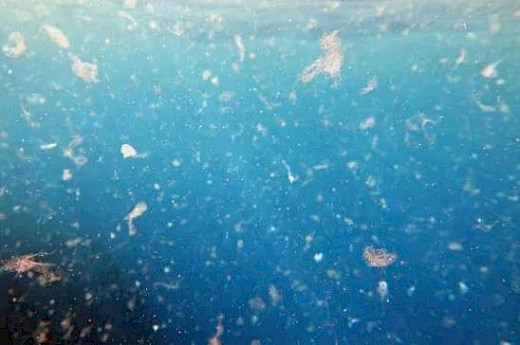Catastrophic microplastic pollution recorded on the beaches of Northern Cyprus

A new report prepared by the Peace Research Institute Oslo (PRIO) has drawn attention to the serious environmental threat facing the northern coasts of Cyprus. The document will serve as the basis for an upcoming presentation and documentary screening organized by the “Green World” Movement.
According to the 2024 study, the beaches of Northern Cyprus ranked among the most microplastic-polluted in the world. This sharply contrasts with the situation in the southern part of the island, which is annually recognized as having “the cleanest sea waters in Europe.” The report notes that behind the island’s image of well-kept beaches and “Blue Flags” lies a large-scale environmental disaster that remains almost unnoticed.
One of the reasons for this situation is the lack of comprehensive statistics. Although Cyprus is considered a single ecosystem, pollution indicators from the northern part of the island are often not included in official reports. This leads to a distorted overall picture and an underestimation of the true scale of the problem.
The authors of the study emphasize that the political division of the island seriously complicates environmental management. Due to the unrecognized status of Northern Cyprus, the region remains excluded from many international environmental protection programs. Lack of investment, infrastructure problems, an imperfect waste management system, and chaotic construction aggravate the situation.
The report proposes a set of measures aimed at jointly addressing environmental challenges. These include the creation of a unified waste collection and recycling system for the whole island, coordinated water resource management, joint measures to prevent forest fires, and common programs for biodiversity conservation.
Experts warn: as long as environmental issues remain overshadowed by the political conflict, the entire island and its coastal waters risk facing a serious environmental disaster.
You may also be interested in:
- Man Falls from Height in Ortaköy While Trying to Enter Home by Rope
- Minimum wage in Northern Cyprus raised to 52,738 lira
- GÜZ-MEK Vocational Training Center to Open in Güzelyurt
- Six years since the coronavirus announcement: key facts
- In Lefkoşa, a 32-year-old man sentenced to 4 years for possession of a pistol


